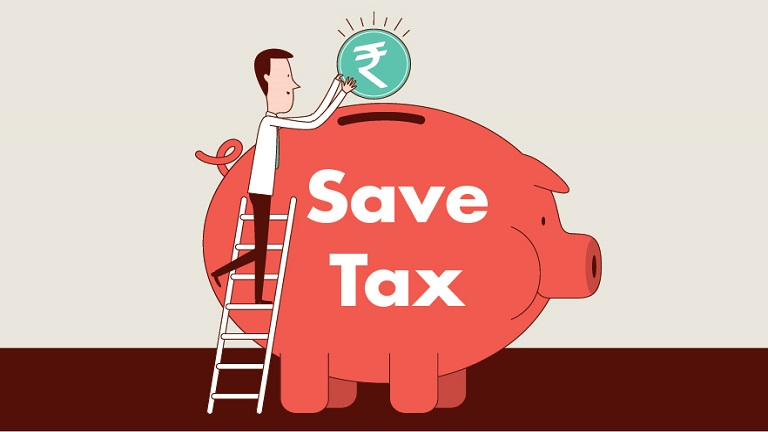Does Moneyम्जी need to tell you the importance of each penny? Maybe not! You are a true entrepreneur. You know, a penny saved is penny earned for your business. You can utilize it more productively.
Paying excess taxes is the most pinching thing for an entrepreneur. Why won’t it be, it doesn’t help in developing his business in any way. ‘Excess taxes’, I said, the ones that can be saved if you exercise care or take a tax expert’s advice, not the ones that deserve to be paid on your profit. After all, the deserved ones would be used in the country’s development.
Let’s understand how to save taxes for your business:
- Preliminary Expenses: The expenses you incurred before commencing the business: on business incorporation, logo designing, project report, or any other area, you must have thought you have already incurred expenses before the commencement of business, so, how will they save you any tax?Areyyy, don’t worry, they will still save you tax. That’s what section 35D in Income Tax Act is all about. The section provides you deduction on these expenses in 5 equal installments for next 5 years So, just don’t forget to record them.
- Cash Payments: Beware! You can make cash payments only within the limit of Rs 10,000. Payments above the same to a person in a single day are entirely disallowed under section 40(A)(3) of the Income Tax Act. Suppose, if you pay Rs 25,000 to a person, then entire Rs 25,000 payment will be disallowed. This limit of Rs 10,000 is Rs 35,000 in case of making payment to transport operators.
- Accounting all operating Expenses: Any expenses to operate a business like rent, electricity bills, phone bills, conveyance, and any other expense incurred for the purpose of business will be allowed as deduction. So, don’t let any expense go unrecorded.Have a proper accounting system in place so that entries are made as and when incurred and also maintain documents like bills in support of those expenses. Take the expert help in setting up a proper accounting system.
- Deduct TDS: You need to deduct TDS on expenses on which TDS is deductible, only then you will be allowed deduction on that expense. As simple as that!Suppose, if you were supposed to deduct TDS on contract payment of Rs 50,000, and you failed to deduct the same, the entire expense of Rs 50,000 will be disallowed.
- Payment on actual basis: This is very important! There are certain payments that are allowed only and only when they are actually paid and not when liability to pay arise. Confused? Wait, explaining.Taxes, employer’s contribution to provident fund, bonus or commission, interest on any loan or borrowings, etc will be allowed as deduction only when they are paid on or before the due date of filing the return. Did you notice ‘due date of FILING RETURN’? Yes, not the fiscal year, but due date of filing return.Hence, if you had to pay taxes for the financial year 2015-16, and you pay them after 31st March 2016, but before the due date of filing return, you can avail the deduction. Or else, they will be allowed in the year when you make the payment.
- Depreciation: The favourite method of the entrepreneurs to save tax. You must have heard that cars, mobiles, computers, and other capital assets should be bought in the name of business. You know why? It’s because you claim the benefit of depreciation to save tax. Manufacturing companies can claim 20% additional depreciation on a new machinery.
- Valuation of stock: As per the accounting standards, stock is valued at lower of cost or net realizable value. Hence, if your stock has a value lower than the cost of producing or buying it, don’t even mistakenly account it at cost. This will deprive you of tax saving otherwise.
- File your tax returns on time: Giving a damn to tax return due date is one great way to screw yourself!I encountered many entrepreneurs after the last date of filing returns saying we did not file the return because we did not have revenues. Oops, that was a mistake, a grave mistake. If you don’t have revenue, you should DEFINITELY file the return! Your losses can be carried forward for a period of 8 years.Suppose you incurred a loss of Rs 50 lakh in a year. It can be carried forward to next year, and suppose, next year you made a profit of Rs 75 lakh, then you need to pay tax on the profit of Rs 25 lakh only, after setting off the loss of previous year. Hence, assuming the rate of 30% tax on Rs 50 lakh, you save Rs 15 lakh tax, just by filing return on time.
Just a few points to keep in mind, and you can thank Moneyम्जी after utilizing the saved tax on business development, technology, keeping employees happy and what not. There are many more ways practically to plan your taxes, according to your business. Take the help of Moneyम्जी wherever needed and an expert opinion can literally help you save a lot.
For any queries, you can mail us at [email protected].

